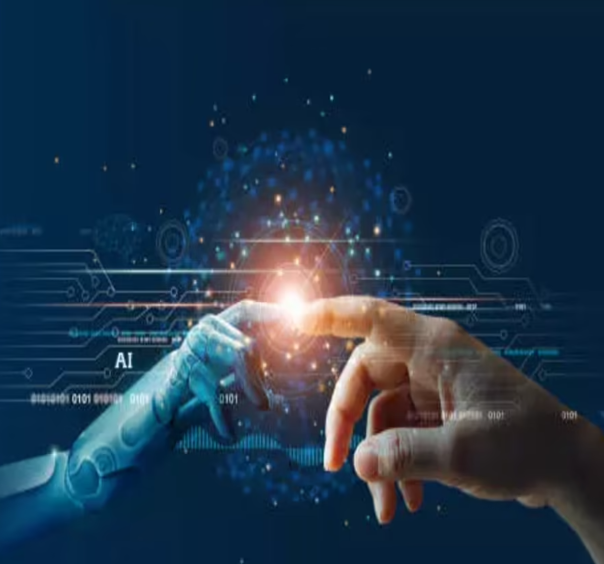The Societal Impact of AI and Automation in the Workforce: Opportunities and Challenges

The increasing integration of AI and automation in the workforce has sparked significant concerns about job security, economic inequality, and ethical issues. These technologies are revolutionizing industries by automating repetitive tasks, enhancing efficiency, and creating new opportunities. However, this transformation also presents challenges that need careful consideration. In this post, we’ll explore the implications of AI and automation, addressing how they will reshape job markets, increase economic disparities, and raise ethical concerns, while also offering insights on how society can adapt to these changes.
Shifting Job Markets: New Roles and Displacements
The rise of AI and automation is dramatically changing the types of jobs available. Many routine, manual positions, particularly in sectors like manufacturing, retail, and logistics, are being phased out as machines take over tasks once handled by humans. For example, self-checkout kiosks in retail stores and automated warehouse robots are replacing cashiers and manual labor, respectively. As a result, jobs that once formed the backbone of many economies are disappearing.
However, new opportunities are emerging as well. Every technological advancement brings with it the creation of new job categories. A great example is the rise of the “social media manager,” a role that didn’t exist before platforms like Facebook began monetizing their user base. Similarly, the rapid development of AI and automation has increased the demand for jobs in fields like data science, AI development, and cybersecurity. Even in traditional industries such as healthcare, agriculture, and manufacturing, new roles related to AI-powered innovations, like autonomous vehicles and precision farming, are on the rise.
To navigate these shifts, many countries are investing in upskilling initiatives. For instance, Singapore’s SkillsFuture program provides financial support for citizens to acquire new skills, particularly in technology and innovation, helping workers stay competitive in the evolving job market.
Economic Inequality and the Digital Divide
While AI and automation promise to drive economic growth, they also pose significant risks in terms of economic inequality. One of the most pressing concerns is the skills gap. Workers who lack the technical expertise or digital literacy needed for new job roles may find themselves excluded from the workforce, particularly in industries that have seen the most automation.
Geographic disparities exacerbate this problem. Areas that were once manufacturing powerhouses, like parts of the American Midwest, have already seen job losses due to automation, leaving them economically stagnant. Meanwhile, tech hubs like Silicon Valley continue to thrive as a result of technological innovation. This concentration of wealth and opportunity in technology-driven sectors is intensifying income inequality, as those who control AI technologies capture a large portion of the economic value, leaving low-wage workers and small businesses behind.
Addressing these challenges requires targeted policies that promote inclusive growth. Governments must focus on providing equitable access to education and training programs that prepare workers for the jobs of tomorrow, while also ensuring that displaced workers are supported through transitions to new industries.
Ethical Challenges in the Age of AI
The ethical implications of AI and automation are vast and multifaceted. One of the most pressing concerns is AI bias. Since AI systems are trained on historical data, they can inadvertently perpetuate existing societal biases. For example, recruitment algorithms might favor certain demographics over others, reinforcing gender or racial disparities. This issue extends beyond hiring practices, affecting areas like finance, healthcare, and even criminal justice.
Another ethical challenge is the rise of workplace surveillance. With AI tools that can track employee productivity and emotional states, there is a growing concern about privacy and autonomy. Sentiment analysis tools, which monitor employees’ moods through video feeds, raise questions about how much personal information is acceptable for employers to gather.
Furthermore, the lack of transparency in AI decision-making remains a significant issue. Many AI systems operate as “black boxes,” making it difficult to understand how decisions are made. In high-stakes sectors like healthcare and finance, this lack of clarity could have serious consequences. Ensuring that AI systems are transparent, accountable, and fair is essential for their ethical integration into the workforce.
Social and Cultural Shifts
AI and automation are not just transforming how we work but also how we live. With the increased efficiency brought by automation, employees may benefit from more flexible working arrangements, shorter workweeks, or even the opportunity to pursue creative activities. AI-driven tools for remote collaboration have already shown how technology can improve work-life balance by enabling flexible work environments.
However, cultural attitudes toward work and technology are shifting in different ways. Younger generations, accustomed to rapid technological advances, tend to embrace the idea of automation as a natural part of progress. In contrast, communities with strong ties to traditional industries may resist automation due to fears of job loss and economic decline. Bridging these cultural divides requires thoughtful engagement and inclusive strategies that consider varying perspectives on technology’s role in society.
Policy and Governance Challenges
To navigate the societal impact of AI and automation, policymakers must take proactive measures. Labor policies need to focus on retraining and reskilling the workforce to help workers transition to new industries. As more jobs are displaced by automation, ensuring that workers can access education and career development opportunities will be crucial for maintaining social stability.
Regulating AI is another significant challenge. Policymakers must find a balance between encouraging innovation and ensuring that AI is used responsibly. Over-regulation could stifle progress, while under-regulation could lead to harmful practices. Frameworks like the European Union’s AI Act are steps in the right direction, setting standards for AI development, data privacy, and algorithmic transparency.
Additionally, social safety nets must be modernized to support those displaced by automation. Concepts like universal basic income (UBI) have gained attention as potential solutions to provide financial security during job transitions. While UBI remains controversial, pilot programs in countries like Finland and Canada have shown that such initiatives may help mitigate the economic impacts of job displacement.
Environmental Impact of AI and Automation
The environmental consequences of AI and automation are a growing concern, particularly in terms of energy consumption. Training complex AI models requires significant computational power, which often relies on non-renewable energy sources. Data centers, which support AI technologies, are also major contributors to global carbon emissions.
However, AI also has the potential to drive sustainability efforts. AI-powered solutions can optimize energy grids, improve manufacturing processes, and enable precision agriculture to reduce resource use. By deploying AI in ways that promote environmental sustainability, both industries and governments can minimize the ecological impact of these technologies.
Key Takeaways
AI and automation are reshaping the global workforce in profound ways. While these technologies offer exciting possibilities for economic growth, efficiency, and sustainability, they also pose significant challenges related to job displacement, economic inequality, and ethical concerns.
To maximize the benefits of AI while addressing its potential downsides, governments, businesses, and workers must work together to ensure that these transformations are inclusive and ethical. By investing in education, promoting fair policies, and ensuring that AI is used responsibly, we can harness the power of AI to build a more equitable and resilient future.


 English
English 












































































































































































































































































































































































